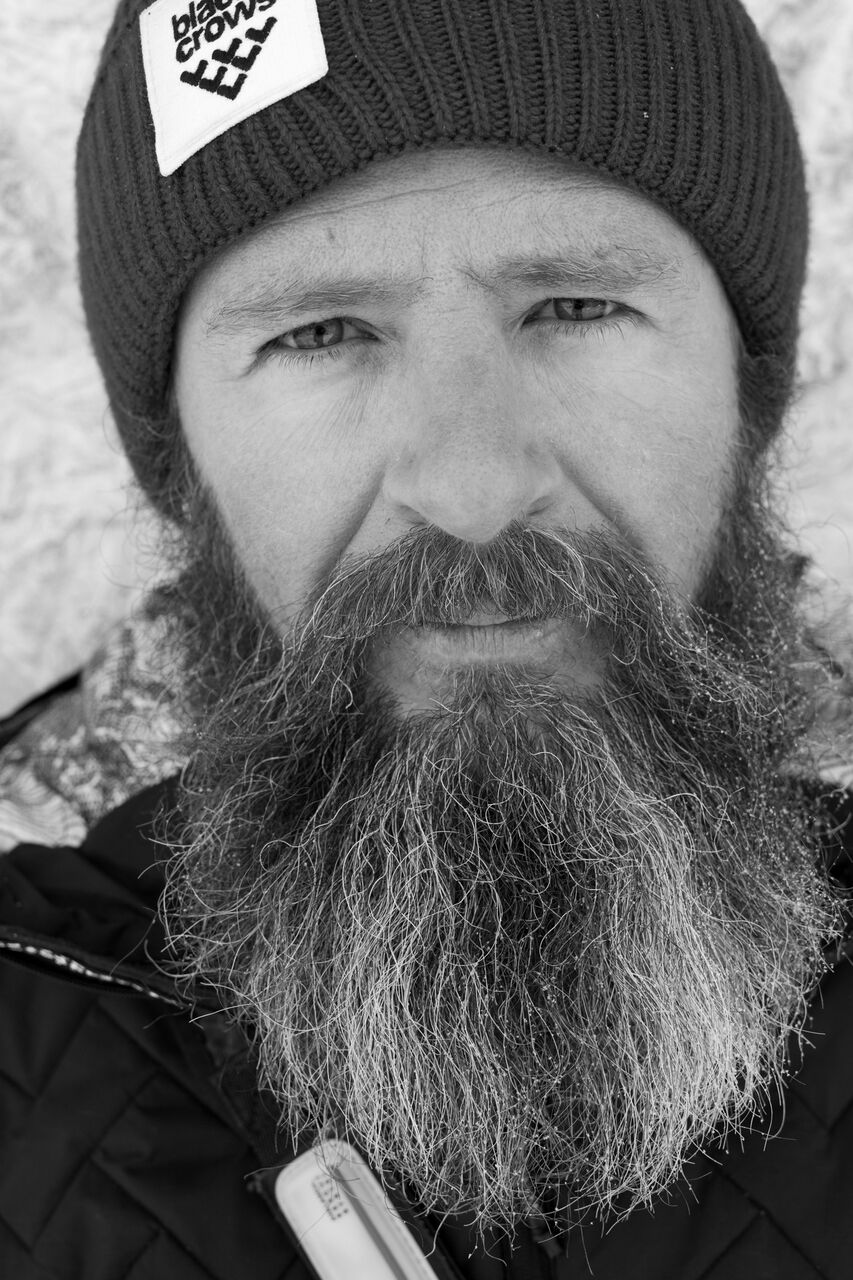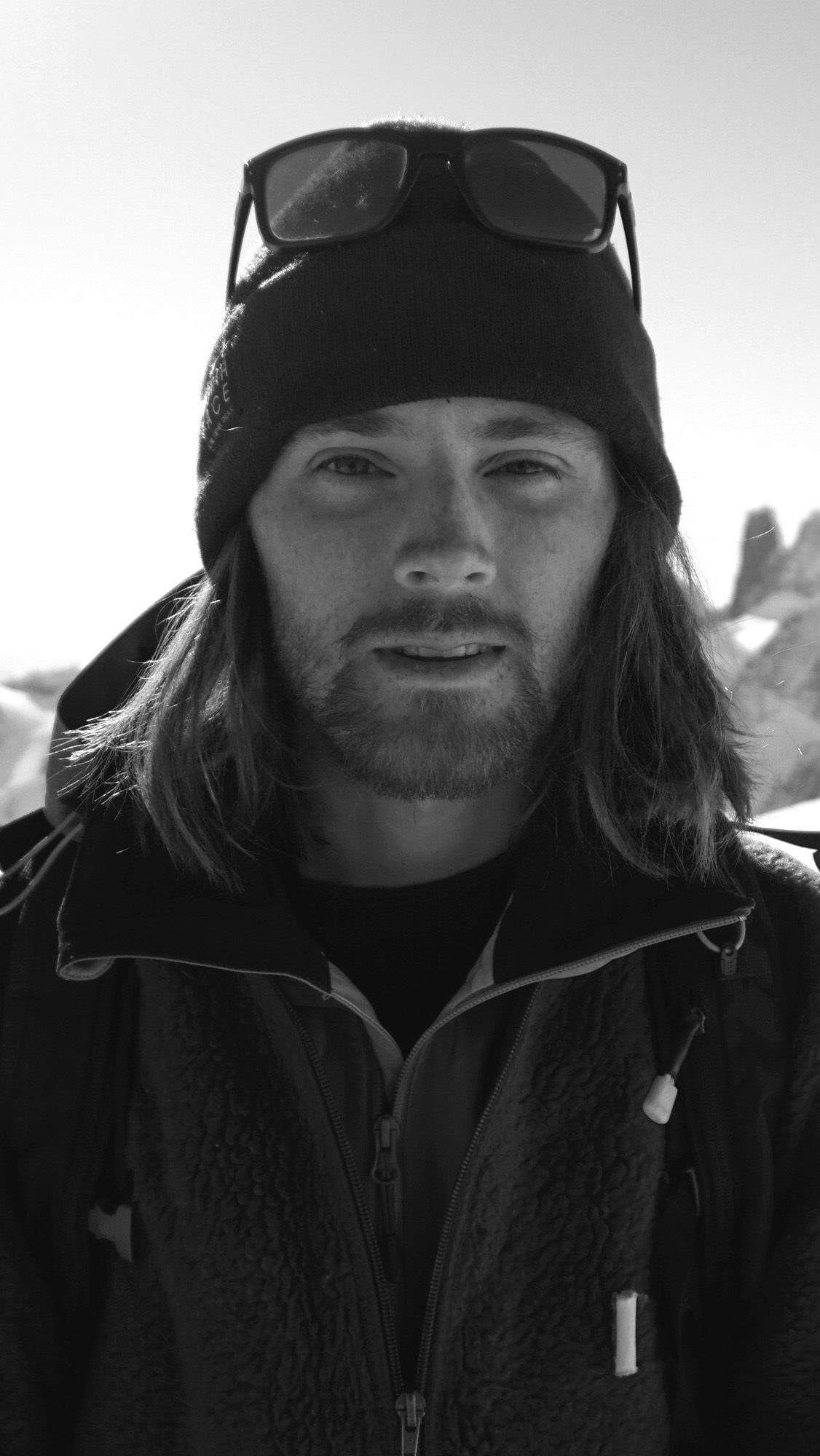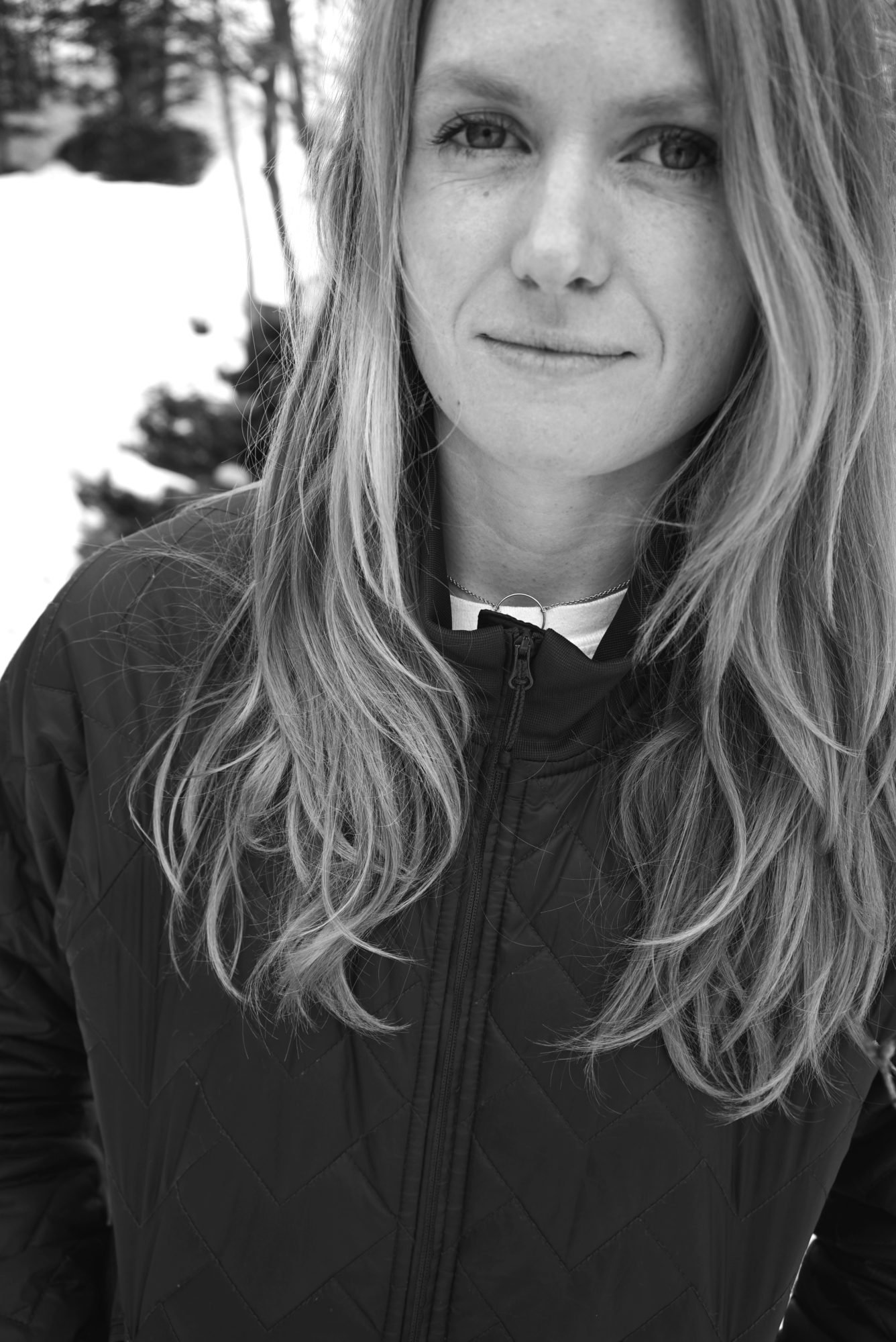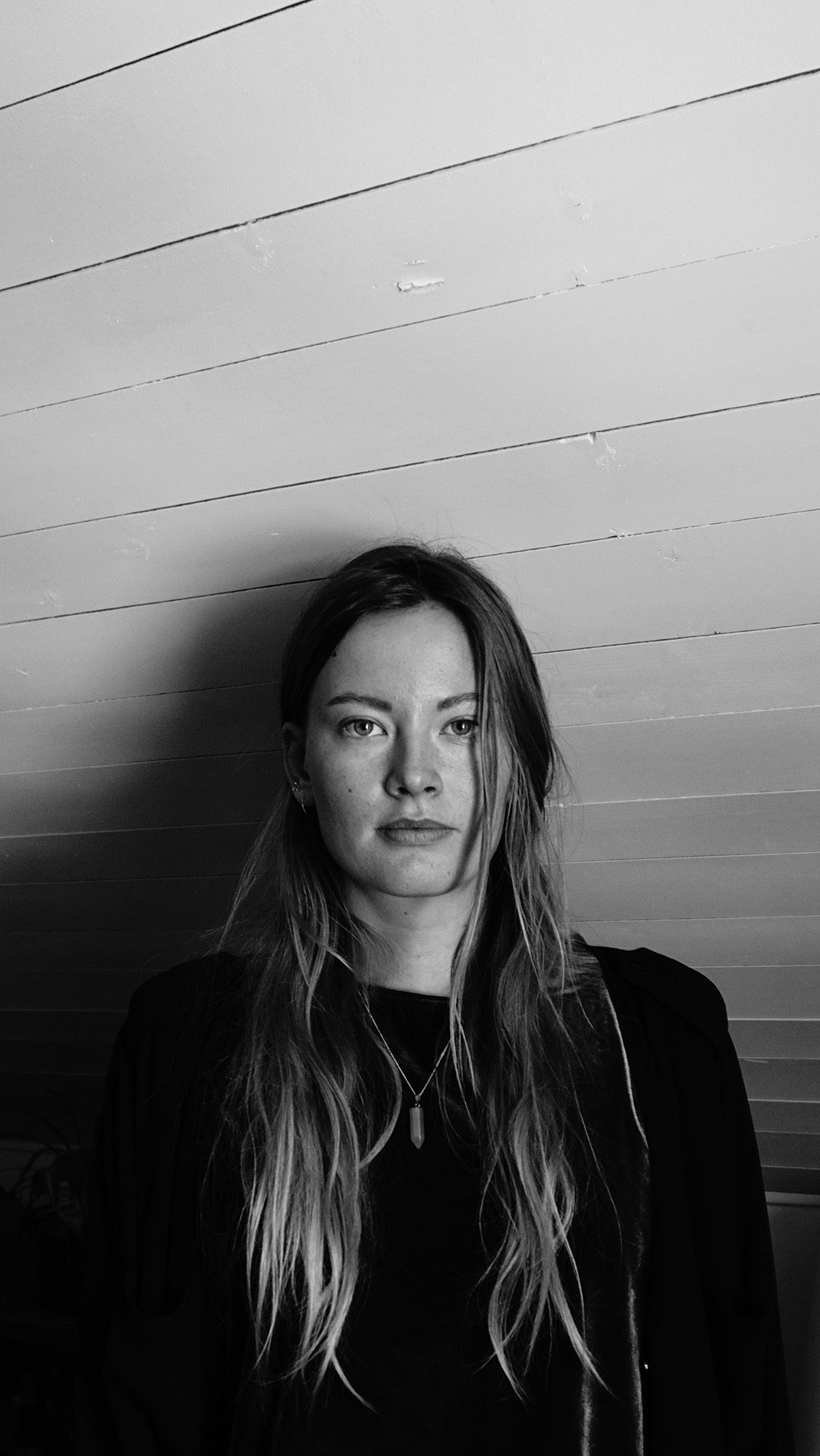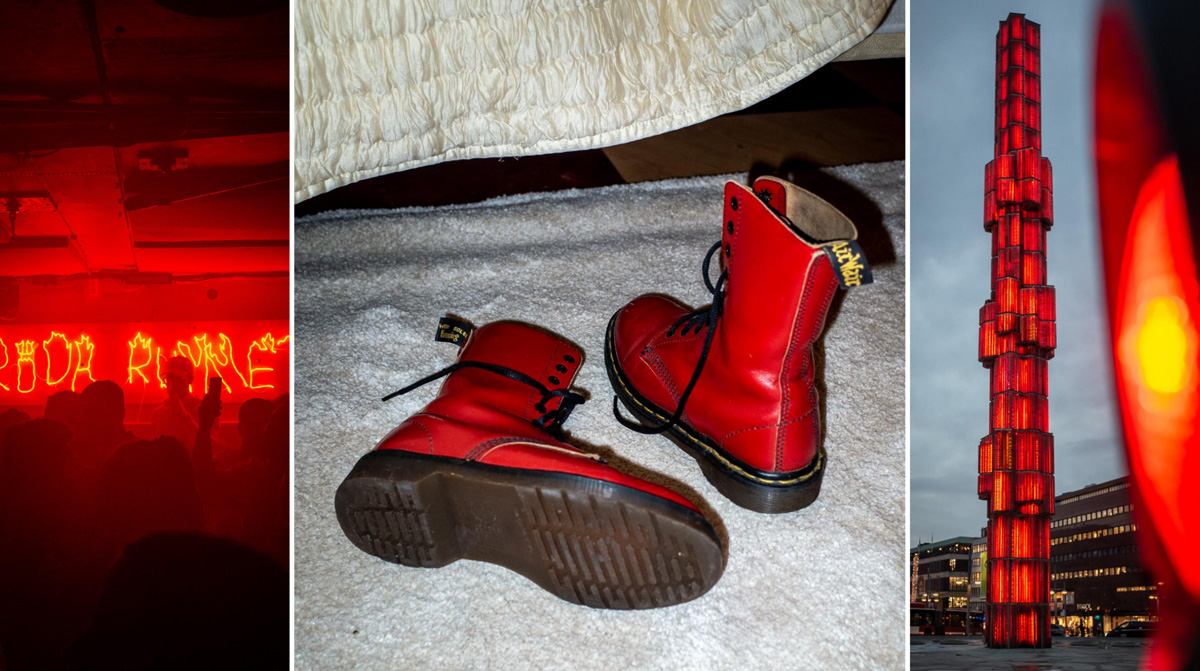Is it reasonable to give everything up to go and live in the mountains? And once we’ve left, are we at risk of getting lost in the idleness of pleasure in the peaks? Exploring the carefree life into which he has stepped, Felix Olsson has gone in search of others who, like him, have chosen to give up normality to embrace an existence as uncertain as it is luxurious.
People are always asking me how long I’ve lived in Chamonix. The simple answer is a year and a half, but the way I see it, the decision was not made until after the first six months. I did a season here and left when spring arrived. I found myself a beautiful apartment in Stockholm, and a job that I truly loved. Everything was perfect, and yet the months started to roll by me one by one without decorating my new apartment, without me getting invested in the Stockholm lifestyle.
All I did was 1) Attempt to improve my French 2) Watch ski- and snowboard movies on YouTube. Something was off. Something had to give. I had to move back to Chamonix. It was my defining moment.
I remember telling my folks about my decision – I had to give up my apartment and my job for a simpler lifestyle in the French Alps. I am lucky. My parents approved. I think they saw in my eyes that my desire was real.
Back in Chamonix I experienced a tranquility of mind that was new to me – there was no longer any doubt in my mind that I was in the right place… At first, just a few months in, strange thoughts of doubt started to emerge in my mind again. Do I deserve this? Am I wasting my time? Should I not be doing anything better while I am young and strong?
The contradictions are clear – I had the golden opportunity to live the complicated, big-city life in Stockholm and I chose to leave it, and return to the mountains… And then, being in the mountains I catch myself questioning if maybe I should not go and become a lawyer, journalist, doctor; a serious person after all? Live the big-city life. Damn. How come?
Am I the only one? Are my thoughts normal? Is there anybody else out there like me? I decided to find out, to seek answers to my questions. Immediately four names came to mind, four adventurers who inspire me because I do not fully understand them. Maybe they can give me some clarity and perspective.
I decided to interview Emelina Landergren, a 25-year old Swedish Freebird. Skier of powder. Dreamer of dreams. Yogi, surfer, thinker. She’s been both here and there, and she is back to tell us about it. A native of Sweden’s biggest island, she is a sea-creature and a snow-creature and a truth-seeker. I do not fully understand her… Maybe she has the answers I seek.
In contrast to her, Martin Brännström: a 28-year old Zen-Monk-skier from the North Face of Sweden. Calm. Composed. True. He has an aura of being decided – it seems he does not experience doubt anymore. When he throws a 360, the word “smooth” gets new depth. He is an inspiration. I want to be more like him. I do not fully understand him. I want to know his perspective…
I also sought out the two souls who inspire me the most. My first meeting with them happened last spring, spontaneously, as I was walking down the Avenue de l’Aiguille du Midi with my father.
“Look, over there”, I said. “See the man with the rockstar-beard and the huge skis? Accompanied by the girl with fiery hair and punk-pink ski-boots? That is Bruno Compagnet, the co-founder of Black Crows, and his partner Layla Kerley, best ski photographer in the valley.”
My dad stopped and observed these two foreign creatures. “So… They’re like… Your idols?” He asked. I shrugged, trying to look cool. “Yeah. I guess they are.”
My dad, being true to all dads, did not disappoint. “Stop! Hey! You! With the beard! Yes, you! My son loves you! Will you pose for a photo with him?”
Ah, dad. Dad, dad. Such was my first awkward moment with Bruno and Layla, in the streets of a springtime Chamonix. Maybe this time around, without my beautiful father, they can help offer some advise and clarity to a ski-bum with a lot of doubts… Savage skiers. Nomads. Lovers. Dreamers. I do not fully understand them…
So that was how I ended up spending a night in the MOÖ-bar with Bruno and Layla, an afternoon with Emelina in the same place, and a morning on the Aiguille du Midi with Martin. I asked my questions, I took my photos. As usual, things do not always turn out as expected. I had predicted what they were going to answer, and they surprised me with perspectives I had not thought of. After my four sit-downs, I can without bragging say that I felt much more at ease. What I take with me is… Don’t worry. You’re in the right place. And keep questioning your lifestyle, take nothing for granted. And ski libre.
-Felix Olsson, February 6th 2018
Why do you think it was impossible for me to stay in Stockholm, and return to Chamonix?
Bruno: “In Chamonix there is a movement, an idea, a lifestyle, a practice, that is a little bit different from the norm. It is full of energy. You have some people who decide to say; Ok, these are the rules… Why follow the rules? I want to go my own way. Chamonix is a good place for that. You’re young, you have a short period in your time when you are strong, your technique about this practice is high and you have time. And these three things are happening for a short time in your life. Afterwards, maybe you marry, have kids, get a job… But if you decide that, okay, I love skiing, I want to be a skier, I want to go and I challenge myself, then Chamonix is a good place.”
We are at the MOÖ-bar at night, the atmosphere is good and the seats are full. Bruno makes a suggestive motion with his hand towards the crowd around us – the bar is filled with weather-worn faces, skiers whose eyes tell stories by just looking at them – and offers some contrast between the ages.
Bruno: “Today, though, there is not exactly the same energy as before. You see here in the bar, all of my friends, we’re starting to get older. Where is the new generation? It is not here, maybe it is somewhere else, Japan, I don’t know. But now something that felt full of energy and character before is becoming the norm, coming to Chamonix, skiing the hard lines, it is not deviant anymore.”
How come it is so hard for me to let go of my doubts and treasure this life?
Layla: “I think that is because of society, you have a lot of pressure. It’s the way society is built. Your parents expect you to study or get a job. Or maybe they don’t – maybe you’ve got nice parents who are chill, but society in that way expects you to do a certain thing. I have friends in the UK who get married, settle down, get mortgages (“Super boring shit…”, Bruno murmurs in the background) I’ve got a different point of view cause I grew up in Chamonix, went back to UK because my friends were dying on the mountain – “I don’t want to be here anymore” – I lived in London, South of England, Scotland, all while studying… I could have had a career, but came back here because I just felt I had to do it. Have a real skiing season.”
Emelina: “I don’t think it is only caused by society… I believe there are many reasons… But the most basic one is our human biology. We would not have been sitting here today in a city with technology and inventions if we did not have a fundamental, uncomfortable and aspirational urges to succeed to develop and feel purpose.
That is the reason we are never satisfied. We always want to strive forward… I can feel happy in moments, for short periods, in the middle of an episode where I can’t yet see the horizon. I know that a certain period of my life will eventually reach its end, I don’t know where I’ll be going next, and that gives me a sense of freedom and pleasure. I also think you always want what you cannot get. When I saw my already-graduated friends in Stockholm with apartments, boyfriends and jobs, I asked myself ‘Am I being silly? Should I comb my hair and get a job?’ Even though they, on the other hand, found my lifestyle to be amazing. As a human, I think you’re never truly satisfied. I have phases of feeling completely free, right in between “before” and “after” the seasons. For some people this limbo is normal but we all know that April and May will arrive, contracts need to be renewed, or not… That’s when decisions need to be made, and you can see that as an anchor, a reassurance. You will make progress because the seasons will change, and opportunities for decisions are coming.”
Do you ever feel what I feel? The uncertainty?
Martin: “”Yes I do. but that feeling does not last the way it used to. I am much more comfortable with my decision to live here and do what I do than I used to be. When I was younger I guess I often felt like I should be doing something different… That there were expectations, the usual stuff, studying, creating a career. And then just I realized that this is what I truly want to do”
Martin and I have just arrived to the Montenvers train station after skiing some silly powder on the Petit Envers-face, and he makes a motion towards the Mer de Glace.
“When I am in the mountains, I am the happiest. Mentally and physically.. I don’t know if you need to make a big commitment to live this life… I mean… I can always move. Do something else. Or the same thing, but somewhere else”
Does that make you feel pressured or comforted?
Martin: ”It definitely does not make me feel pressured. First of all, I know I could always return if I did leave to try something else. That gives me comfort. Knowing that if I ever leave, I would still know this place by heart. But it took a while for me to get over the doubt that maybe I ought to be doing something completely different.
Was it easier for you to not doubt so much after you came back to Chamonix?
Layla: “Yes, because I’ve lived in London and I know how much shit it can be… You go out weekend spend all your money. It’s funny that going away made me want to come back. But the thing is my parents are ski bums too, so they’re like ‘oh yeah your life here is great.’ So my perspective is not like everybody who came with you from Sweden…
What did leaving Chamonix change in your perspective? Did you learn anything new about yourself?
Emelina: “Nothing I do is ever only black or white. I never thought ‘I won’t be coming back’, it was just a feeling I had at the time – ‘now I want to leave’. My one constant is that I’ve never wanted to live in a big city, I want the closeness to nature. But that gets more nuanced the more I travel and meet people… And I was surprised when suddenly I wanted to go back to Chamonix. The fact that I have a kind of family here… Is so cool. I am so happy for that. If it was not for the people here, I would not have returned. To share everything here, the beautiful, dangerous and scary… With people who share a similar worldview… Is special.”
But does it make sense to you what I am talking about, the doubting?
Layla: “You’ll get existential doubt whatever you’re doing. Sometimes it’s hard, especially at the moment when conditions are bad… But you’ve got to realize how lucky we are. Sometimes you forget. Like the first time you go up the Midi for the season… Ah, It’s like breathing again.
When you do something that needs a lot of concentration, like steep skiing, you realize how lucky you are to get to do something that allows you to live in the moment. And I guess you want to keep that with you all the time when you come down to the valley.”
To this, Bruno agrees.
Bruno: “The challenge is to not lose what you are feeling on the mountain. When I go in the mountain I don’t think about all that stuff that stays in the valley. I feel free and good, and I do exactly what I want to do.
I’m not rich, but I am almost free. And I do what l love. I want to continue on this way”
On the way to getting there, are there ever moments when you’re thinking “is this wrong, should I be doing something completely different?”
Layla: “The thing is with Bruno, skiing is all he needs…”, Layla murmurs.
Bruno: “Maybe for some people it is enough to be just a skier… It depends on you. There are no rules. You can be completely happy with just skiing, but if you feel you ask yourself that maybe I can do something more with my life, you need to change, you’ll find a way. You find another way to live.”
Do you get reassurance, Layla, because you feel like that’s what you did when you tried living in England?
Layla: “I like to be versatile, I like to be able to go and do different things. I feel really comfortable in England. But whatever you’re doing you’ll have existential doubt. If you’re doing a season, being a skibum, you’ll be viewed by society as being a bit outcast. But people find their ways here – we ski a lot with guides, with people who work in the shops, people who have a passion. I think if you have a true passion it is so sad to not to live it out. It makes me think of our protégé́, Tor, who has gone back to study. And I feel like he needed it, some more structure in life… And I think for a lot of people what you need is something to fall back on.
I’m a bit on a different path than a regular skibum because I grew up here, and I also was let to study, so I know I can always do something alternative if something happens.“
Do you think it is normal to feel the need of something to fall back on?
Layla: “It is important if you have questions that persist that you go explore and see what happens when you get out of this small valley.”
Do you sometimes consider a completely different lifestyle?
Emelina: “Yes. I am curious about what life has to show me. What is true to me is not necessarily true to others. I left Chamonix for six months… It felt like a really long time, but when I came back everything was the same. There is a rhythm here that beats around skiing, and it is fun, free and playful… Experiencing that for the first time was so crazy. Adrenaline happiness. But being free all the time becomes boring too, and that’s when I start itching for something new. I think we want to do something that is interesting on an intellectual level, in addition to all else. Maybe it is difficult to find intellectually stimulating jobs here?”
Is it healthy to question your lifestyle?
Martin: “I actually think that you need to question it… Until you realize what you truly want to do. Don’t just take life for granted, what you’re doing for granted. Will I enjoy life in five years? Asking yourself if this is healthy. Think about who you are, what you really want to do. Otherwise you might wonder, five years down the road, why did I never consider this before?
Is the idea of the simpler life more attractive to you than a life of wealth?
Emelina: “Much more attractive. But my perspective is that Chamonix is small, and that I don’t know the truth about what makes a human happy. Compared with the big-city-life: what is right and wrong? I think you can never judge another person before you’ve experienced how they live so I am always interested in trying different things.”
Can you remember a defining moment when you decided to live this life?
Bruno: “When I saw the valley for the first time. I came via Col des Montets, I was with my dad. We arrived at the end of season and I saw the Grand Montets and something happened in my head, I knew I want to ski here. Next season I’m here, I’m sure. After I decided to come back here. After, it’s been my life, here is the place I want to stay and to live. It is unique in the world, there is no other place like this. When I started to be skiing professionally I didn’t want to follow the tours to go to other places. I wanted to travel, but at the end I always came back to Chamonix, because we have the Aiguille du Midi and there was less people. I remember some days we did five laps on the Midi. There was no rules. It was paradise. But at the same time it is dangerous, I’ve lost friends. I’ve started days with three in the group, and then you come back and there is only two. You have to call the mother, who does not believe it. You can live the dream, but you also realize some dark things. When the season is finished, you might get depressed.”
Emelina: “After my first week in Chamonix. I said, this is what I want to do, I want this to be my life. It does not have to be just one week of vacation… It can be my everyday. I was not sure if it would be in Chamonix or not, but I knew I would not be living the 9-5 in a city.”
Martin: ”After my second winter in the Alps. Having left in the summer to go home made me realize my love for this place. Nothing was the same at home. It was much more difficult to find people to do stuff with. I missed the mountains, but I missed the community just as much. I really value the fact that it is easy to find like-minded people here. I felt like it was bubbling inside my body when I left. I remember that when I returned, I knew I’d also stay.”
What are some less glamorous parts of this simpler life?
Martin: “Maybe some structure in the daily life. I realized quickly that I don’t want to be just a skibum. I need a life aside of skiing, and the social part of that is important. I can’t just talk and think about skiing all the time. The social life we get here through work and through Chamonix diverse population is important. The fact that people who don’t even ski live here is a big thing for me. People who live here for other reasons… Artists, musicians, normal people. It contributes to the community, and it is one of the things that differentiate Chamonix from other ski-towns.
Is there anything on social media that can make you feel FOMO (Fear Of Missing Out), jealousy or doubt?
Bruno: “Pas vraiment… Because I organize all my life around skiing. I’m starting to get older. The season and life is long. If for some reason I miss some first bin to the Aiguille, I have seen it for 25 winters, and maybe this day if I’m not in the first bin it’s because I had a good party with my friends, even if its bluebird I feel like it’s okay. When you get older you’re okay with this. And I don’t have a normal job, so it doesn’t affect me the same way.
I’m not frustrated about my practice now, If I knew exactly the meters I’ve skied in my life…
It’s not that I don’t care, but it’s not something that makes me feel sad. If I’m not the first in the line, I say ok good job guys, but sometimes we arrive, I want to ski a couloir with Layla, and I see the couloir and it is perfect, but then 8 people go before us and destroy the line by sliding… Ah, don’t go and destroy this amazing place. This makes me sad.”
Layla: “Not when we are so lucky, we’ve had so many good days.”
Emelina: ”Not really. As long as I am happy with what I am doing, I get inspired. When I am here and get to do what I want in the mountains with my friends, or when I am surfing in Sri Lanka, or when I am in Gotland with my friends… I get inspired by others. Not jealous.”
Martin: “I am not really part of the social medias you’re talking about… But when I go home, I always feel the contrast between what I do and what they do there. They often consider my lifestyle a mistake, and sometimes I feel jealous of them. Not of the stuff they own, but because maybe, potentially, it would have been cool to have a normal job. But I know that I could never live in a big city. The rules about who to be and what to do stress me out. I also always feel that people prioritize what you do over who you are… Something is a bit off there. But I would also miss the kick I get of being so close to something… Well… Like that”
He points to the Mer de Glace, again.
“It is invaluable for me.”
If someone is considering leaving for a simpler life… Advice?
Emelina: “Just do it. I think a lot of people dream of a different life, questioning their everyday, daydreaming over social media, feeling jealousy. People feel held back by all their “must do’s”, but I think the problem is just a fear of losing the comfort. But no one will regret leaving their everyday and trying something completely new. Attempting to go against the stream.”
Martin: ”Consider your lifestyle where you are. Whether you are happy, or if you feel like you have more to give. I felt like I did not get to do all that I was capable of doing back in Sweden. That was all the motivation I needed. Having big mountains and big areas to explore. And the community. There are a lot of spontaneous people here. I am pretty spontaneous, too.
